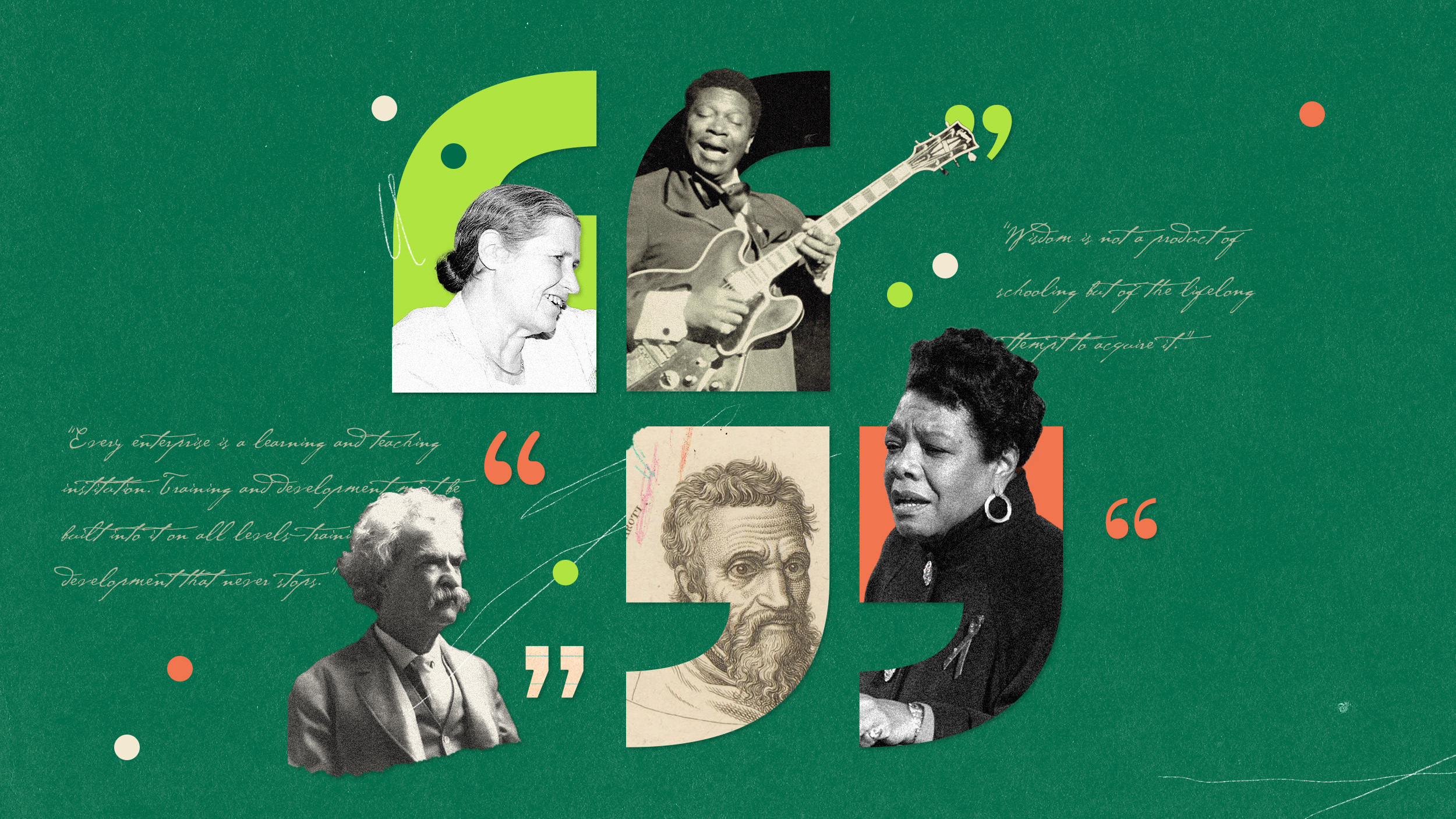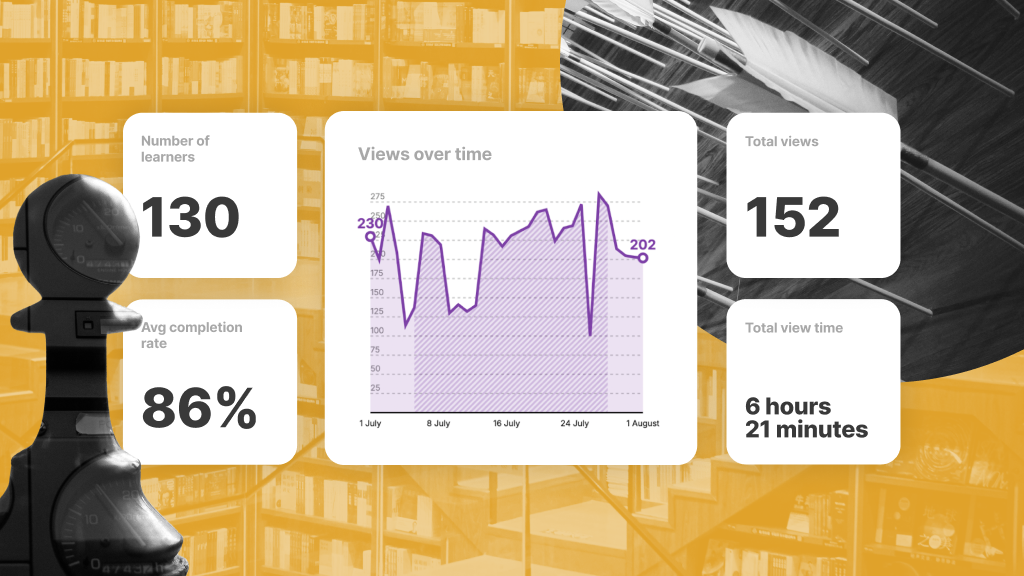3 key takeaways from ATD 2024

This year, the Association for Talent Development’s International Conference & EXPO (ATD24) encouraged its 9,000-plus participants to “Recharge Your Soul.”
From May 19–22, learning and talent development professionals from across the globe gathered in New Orleans to connect, refresh, and revitalize as they enjoyed educational sessions, expert panels, and networking opportunities. But as in previous years, the most anticipated events were the conference’s renowned keynote presentations.
ATD24’s keynote speakers included Matthew McConaughey, Academy Award-winning actor and New York Times bestselling author; Daniel Pink, a New York Times bestselling author; and Venus Williams, world-class tennis legend, entrepreneur, and philanthropist.
Here is what each had to say:
McConaughey on the math of optimism
“Alright, alright, alright” were the first words McConaughey spoke on film (in the 1993 cult classic Dazed & Confused). Thirty years and forty films later, the catchphrase appears to be his philosophy for life.
In a conversation with ATD’s content connector, Holly Ransom, McConaughey spoke about maintaining a balance between humility and power, there being more than one way to be correct, and how preparation is the science before creation. You may not create magic every time, but with preparation, you can at least connect the dots.
The Texas native, who noted in his memoir, Greenlights, that “the world is conspiring to make me happy,” also shared his thoughts on optimism. He described it as more than just an attitude but an essential part of survival. Its opposite, cynicism, does not pay residuals. However, the math of optimism adds up.
Pink offers five techniques to navigate what’s next
Pink’s energizing keynote was delivered on May 21st, the 142nd day of the year. “What’s next for the next 224 days of 2024?” he asked. Nobody knows.
That’s because we are currently experiencing what Pink dubbed “The Great Sorting,” a period of contemplating fundamental questions about work. Although it’s difficult to predict what the future holds, Pink shared five techniques that can help us better navigate whatever comes next:
- Create a “to-don’t list”
When seeking solutions, the default instinct is to add something to the problem (time, money, action, etc.), Pink argued that subtraction is the more powerful tool.
To practice this, draft a list of the things that divert your attention and drain your energy; then simply don’t do them. For instance, Pink’s list includes, “Don’t say yes to anything you wouldn’t say yes to two days from now.” In other words, if you don’t want to do it today, chances are you won’t want to do it in six months.
- Establish a progress ritual
A Harvard Business School study found that the biggest daily motivator in the workplace is making progress on meaningful work. The days when people make progress are the days when they are at their best.
A good way to quantify progress is to list three accomplishments at the end of each day. Memorializing these is essential for realizing the strides that you have made, especially on days when it feels like you’re standing still.
- Have more conversations about “why”
It’s easy for a leader to tell a direct report, “Here’s how we’re going to do the sales presentation.” But it’s more impactful for a leader to explain, “Here’s why we’re doing the sales presentation.”
Why conversations tap into an individual’s need for purpose. Providing a sense of purpose, Pink noted, is the most cost-effective performance enhancer at a manager’s disposal.
- Take a break
Breaks are not deviations from performance; they are part of performance. Effective breaks take the following into account:
- A one-minute break is better than no minutes.
- Moving is better than stationary.
- A break with others is more restorative than alone.
- Outside beats inside.
- Fully detached is better than semi-detached.
As such, a daily 15-minute walk outdoors with someone you like, talking about something other than work, and leaving your phone behind can do wonders for work performance.
- Make bolder decisions
Pink’s research found that the most common regret people have is not taking enough risks, and this applies to careers as much as romance and travel.
When at a juncture in life, people can play it safe or they can take a chance. The ones that play it safe often look back and wish they had taken the chance. Asking yourself the following questions can help with taking bolder action:
- If you were replaced at your job tomorrow, what would your successor do?
- If your best friend came to you with this problem, what would you tell them to do?
- What would the you of 2034 want you to do?
Williams on playing the mental game
Williams credits her father and coach, Richard, with teaching her to manifest before it was cool! As a young girl, she would sit in an empty stadium at Wimbledon before the crowds arrived and visualize her win. It wasn’t always easy to believe, but it was important to act like she did. She likened this ‘faking’ of confidence in times of doubt to an alter ego, like Beyonce’s Sasha Fierce.
In her breezy conversation with Ransom, Williams also spoke about the importance of journaling, maintaining high standards for oneself, the power of a process, and how to turn defeats into wins.
As a tennis champion, Williams is used to winning, but it was the losses that provided the most opportunity. Don’t get used to losing, she warned. Resistance to loss is normal, yet those who never lose are simply not taking enough risks.
Final thoughts
ATD 2024 recharged the souls of learning and development professionals by challenging us to make moments of recovery part of daily practice. It reminded us that the most creative word in the leadership vocabulary is yes and asked us to consider how we can build cultures where people can do their best work and be their best selves simultaneously. What is more revitalizing than that?




